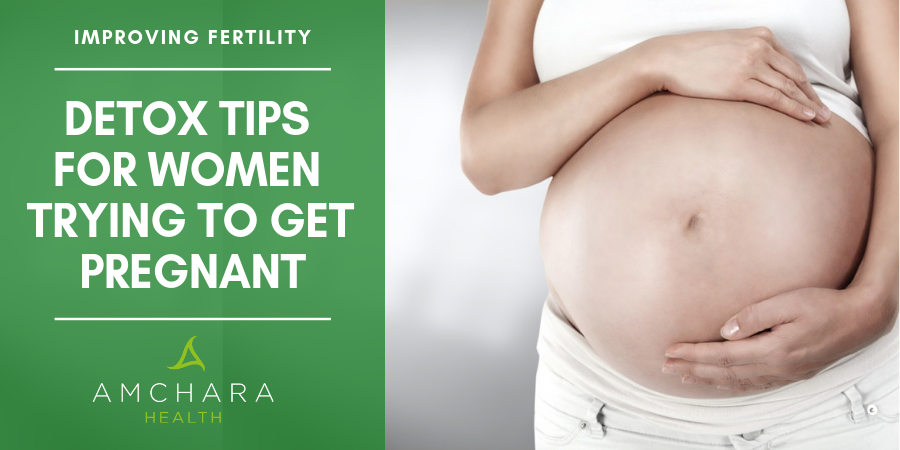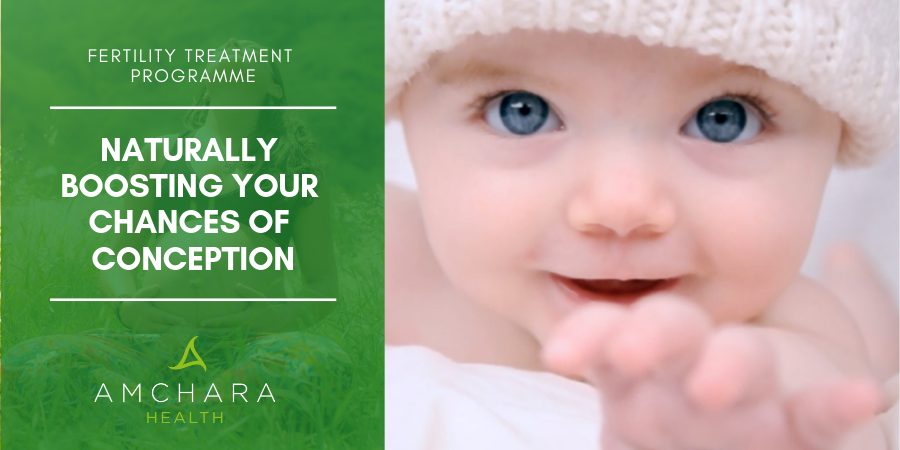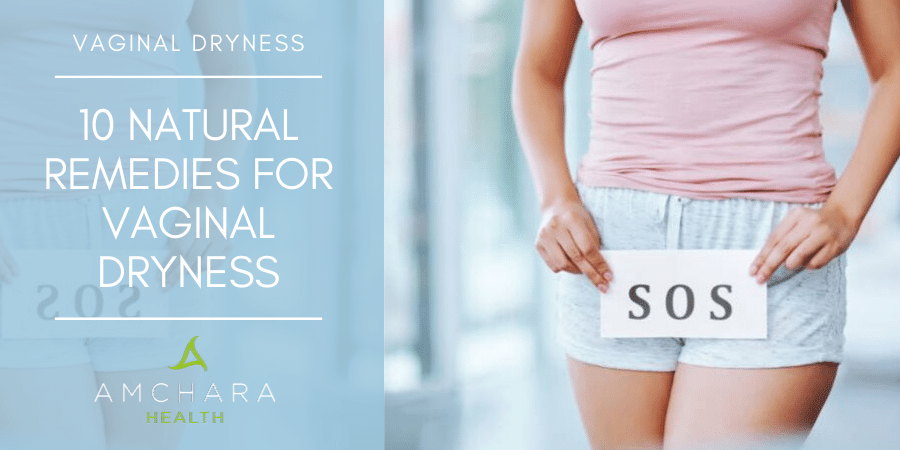Keeping your body healthy is vital for optimal fertility.
Supporting effective detoxification is one of the key steps for preventing hormone imbalances and making sure your reproductive system is fully functioning.
Our mission is to provide you with both insightful information and evidence-based content to provide you with actionable knowledge and tips to help you on your journey to optimal health.
Remember that the advice given may not suit specific individual restrictions.
The transformation from a microscopic egg to a full size human baby is truly miraculous, but it requires the right environment for the growth, maturation and development to take place.
Getting your body prepared is the first step towards achieving a successful pregnancy and a detox is the perfect starting point.
In this article, we discuss why it might help to improve your fertility.
Table of contents
It takes at least 3 months for immature eggs and sperm to mature, so ideally, you and your partner should be looking at a four-month preconception period when you are planning to start a family.
One of the key factors when preparing for pregnancy is to make sure your body is in optimal health, which includes your physical, emotional and mental health.
For some individuals, stress may lower the chances of conception (4) and successful outcomes are further diminished if there are hormone imbalances as this may affect ovulation. (5)
Excessive levels of toxins in the body may contribute to stress and hormone imbalances, which is why it makes sense to embark on a detox programme before planning a pregnancy.
Research has demonstrated that toxins such as xenoestrogens affect both male and female reproductive function, most notably in the development of polycystic ovaries, which is one of the most common causes of infertility in females. (6)
Optimising your fertility involves careful planning, determination and commitment to a healthy diet and lifestyle.
Your pre-conception plan should include:
- Good quality nutrition
- Regular exercise
- Protection from environmental chemicals
- Effective toxin elimination
- Adequate sleep
- Strategies to minimise stress
If you find yourself having trouble conceiving, encouraging effective detoxification is a very positive step towards improving fertility.
Toxins and fertility
Living in a highly polluted area or working in an industry that exposes you to pesticides, organic chemicals, radiation or heavy metals may affect your reproductive health. (1)
Some of the debilitating effects include:
- Hormone imbalances
- Changes in menstrual cycle
- Accelerated ageing of eggs
- Quality, motility and number of sperm
- Increased risk of miscarriage or birth defects
- Poor foetal growth late in pregnancy
Research into male infertility has identified that the oestrogenic and anti-androgenic effects of certain types of environmental toxins can induce DNA damage.
This can have a negative impact on semen quality and motility. (7)
In women, DNA damage as a result of environmental toxins has also been found to affect the quality of eggs available for ovulation. (10)
How to support your body’s detoxifying systems
There is no way of completely avoiding exposure to environmental toxins and your body is exposed to numerous foreign chemicals on a daily basis.
They are everywhere – in the air, water, soil, medications, household and cosmetic products and in food.
A toxic build-up of these substances coupled with an inability to metabolise them can have a detrimental effect on your fertility.
The solution is to try and minimise your exposure to toxins, whilst at the same time potentiate your body’s ability to deal with them by supporting your own natural detoxification systems.
You can do this in 5 easy steps:
1. Give your liver a break:
Your liver is probably the hardest working detoxifying organ in your body, so you need to look after it if you want to maintain good health.
Alcohol, cigarettes, caffeine and drugs (recreational and pharmaceutical) are all toxins that your liver has to deal with which can overload your system.
So you should say goodbye to these.
However, don’t stop taking medications before first discussing with your GP.
Avoid exposure to toxins in your workplace or home by wearing protective gloves, glasses and appropriate garments whenever handling chemicals or toxins.
Try to reduce the number of chemicals you use at home and always read labels on cleaning solutions and gardening products.
There are some great environmentally friendly products these days that you can use to replace toxin-heavy options.
If you want an informed opinion on which ‘green’ household cleaners work the best, see what Wendy has to say in her eco-friendly blog at Moral Fibre.
2. Clean up your diet:
In terms of food, clean up your diet and go back to basics.
Try to drastically reduce (or ideally eliminate) your intake of sugar, saturated fats and highly processed foods.
These have very little nutritional value and only add to the burden on your liver.
According to research saturated fats and sugar are associated with poorer fertility outcomes for both men and women. (9)
To minimise heavy metal exposure, cut down on your intake of deep-sea fish such as swordfish, king mackerel, tilefish and tuna, all of which contain more concentrated levels of mercury.
Consuming high levels of mercury can penetrate the blood-brain barrier and impact on brain development in foetuses. (2)
However, cooking fish or eating it with green tea helps because certain polyphenols found in some foodst (such as green tea) could reduce how much mercury the body absorbs. (2)
Your body has a hard time detoxifying and eliminating the pesticides that are found on many fruit and vegetables.
The body’s solution to this is to store excess toxins in your fat cells. (13)
This may lead to long-term problems as these chemicals can have an oestrogen like effect on your body, interfering with hormone balance.
A few preventive measures can help:
- Switch from conventional grown fruit and vegetables to organic produce. These are proven to have lower concentrations of synthetic pesticide metabolites.
- Peel off the skin or remove the outer layer of leaves; this really helps to reduce the pesticide levels.
- Thoroughly rinse all fruit and vegetables (even organic) under running water and scrub firm fruit and vegetables like carrots and potatoes.
- Remove fat and skin from meat, fish and poultry to minimise residues of pesticide that can accumulate in the fat. (3) Choose free range and organic versions of these foods.
3. Encourage maximum liver detoxification:
There are two major phases of detoxification in the liver – Phase I and Phase II.
These are dependant on many critical nutrients.
Either or both of these phases can be reduced or enhanced so it is important to consume adequate nutrition to enable both detoxification phases to function correctly.
One way to make sure you get the perfect mix of nutrients for a fully functioning liver is to include plenty of fresh fruit and vegetables.
A key substance that these contain is glutathione an amino acid that helps the liver to carry toxins out of the body.
Glutathione has powerful antioxidant properties, which help to eliminate heavy metals, solvents and pesticides.
The more the body is exposed to toxins the faster it uses up its glutathione supplies.
Other beneficial compounds naturally present in fruit and vegetables can help to counter the effects of toxic substances.
Fruit and vegetables that are particularly good for liver health include:
- artichoke
- beetroot
- broccoli
- garlic
- leeks
- onions
- turmeric
- parsley
- cabbage
- watercress
- apples
- pears
- apricots
- berries
- citrus peel
- grapes
- oranges
- watermelon
Antioxidants are a vital part of the detoxification process, all the more reason to include a colourful variety of fruit and vegetables so that you can benefit from a wide range of antioxidants.
These help to protect the liver from free radical damage caused by toxins and alcohol.
Oxidative stress has also been shown to threaten sperm and egg quality, therefore antioxidants could improve reproductive health. (8)
Vitamin C, vitamin E and the B vitamins are essential for the activity of enzymes used by the body during detoxification.
By including avocados, mushrooms, yeast extract, whole grains and nuts and seeds alongside the fruit and vegetables in your diet you can ensure you are getting a good range of these important vitamins.
No detox regime would be complete without the help of Milk Thistle.
This popular herbal remedy has been traditionally used to support the liver and gallbladder for over 2,000 years.
Silymarin, an extract from the seeds of milk thistle is believed to be the biologically active part of the plant.
It has powerful antioxidant properties, helping to protect and support the liver.
Choose green tea as a healthy alternative to standard tea and coffee.
Animal studies have shown its antioxidant properties have a protective effect on the liver helping to reduce damage caused by toxins.
Protein is sometimes overlooked in strict detox regimes, but it shouldn’t be – liver enzymes are types of protein that are vital for liver function.
As well as this, the proteins found in chicken, fish, lentils, beans, eggs, meat and nuts contain important amino acids such as glutamine, taurine, methionine and N-acetyl-L-cysteine which are all essential for the health of the liver.
4. Assist bowel movements:
To fully detoxify you need to eliminate unhealthy chemicals from the body.
Many toxins are excreted through the faeces so ensuring regular bowel movements is very important.
Fibre is one way to help eliminate toxins from the body.
Whole grains such as oats and brown rice as well as fruit, vegetables, lentils and beans are great sources of fibre.
A good combination of probiotic bacteria, alongside aloe vera and flax seeds, can also help to soften and bulk out the stool, promoting healthy and regular bowel movements.
5. Exercise regularly:
It‘s really important to keep active to enhance fertility.
According to research, taking part in regular exercise can improve fertility by reducing the risk of ovulation problems and lowering the risk of miscarriage. (11)
As well as this, studies show that exercise improves liver function. (12)
Lymph, the fluid that removes toxins and poisons from the tissue spaces around your cells, can only move around the body with the help of exercise.
Why not combine a cleansing detox diet within a nurturing and supportive environment?
At an Amchara Health Retreat, you can totally focus on preparing your mind and body for a healthy happy pregnancy.
Author: Jacqueline Newson BSc (Hons) Nutritional Therapy
READ THIS NEXT:






